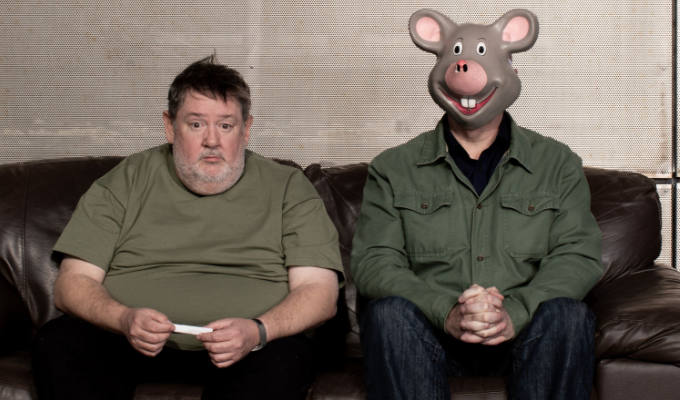
Olga Koch: Fight
Note: This review is from 2018
Edinburgh Fringe review by Steve Bennett
Olga Koch has a fantastic story to tell, rooted in pre-glasnost Russia, and only one chance to tell it for the first time. But she seems to have taken that opportunity too soon, as her comic skills are not yet developed enough to do it full justice.
She throws quite a lot at the job, a variety of styles and a number of ideas and strands that fight with each other, rather than supporting or developing a core idea. It strikes a note of panic, rather than a confidence in the source material, even though her delivery is relaxed.
Is it about living in a genuine post-truth society where honesty could be fatal? Is it about how the oligarchs came to dominate Russia amid the chaos of privatisation? Is it about the naivety of the state heading into this bold new world? Is it about her relationship with her father? Is it an espionage thriller? Is it a more straightforward run-down of how she got to be who she is today? Yes, all of these, and not quite any of them either.
But at its core is a sinister and intriguing incident when her dad, Alfred, was stopped by authorities when trying to fly out of Russia – then going missing the next morning.
Before we get to that, though, there’s some perfunctory material to get the low-hanging gags about her surname out of the way. It feels out of place, designed to address a club crowd’s sniggers than setting up a Fringe storytelling show, and the audience certainly don’t get on board, forcing Koch into some compere tricks to try to engage. Smart of her to observe this and try to correct for it, though it didn’t fully work.
Then she takes us back to the Russia of her birth, under the fearsome grip of the KGB and where Stalin’s rewriting of history still cast a shadow. Then the perestroika reforms of Mikhail Gorbachev, that would eventually lead the President to star in fast-food adverts… and would, through an unlikely series of events land the under-qualified Alfred Koch a pivotal role in syphoning all the nation’s vast resources to a minuscule elite. That was just one of several unexpected career turns for the one-time small-town janitor.
It is a fascinating yarn, and when Koch’s telling it, and many of the other family stories in its orbit, the material is plenty strong enough to command interest. Yet much potential is also wasted; thematic strands emerge but are abandoned too soon. And she ends up discussing her relationships and belting out a showstopping song to an unreceptive crowd, neither of which seem necessary.
Away from the cheaper lines, Koch has quite a cheeky, knowing sense of humour, exploiting stereotypes we have of her homeland and a keen ability to highlight absurdities in how the nation stumbled from the Soviet era and into a naive, but dog-eat-dog version of Western capitalism and democracy. She piques the interest, both in the story and in herself as a comedian, but doesn’t quite deliver.
Review date: 12 Aug 2018
Reviewed by: Steve Bennett
Reviewed at:
Pleasance Courtyard








